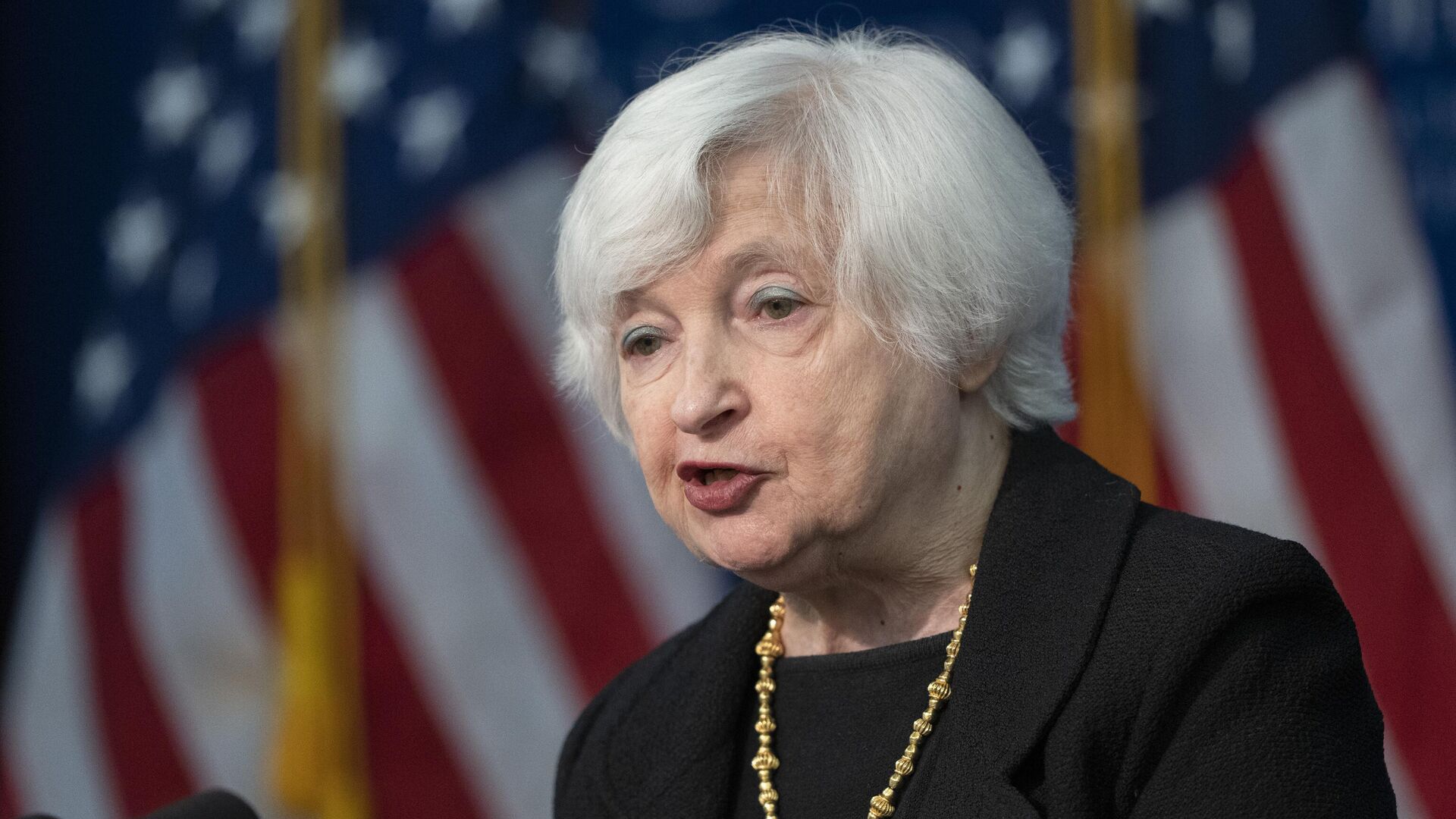https://sputnikglobe.com/20230930/price-cap-on-russian-oil-not-working-as-intended-yellen-admits-1113814821.html
Price Cap on Russian Oil Not Working as Intended, Yellen Admits
Price Cap on Russian Oil Not Working as Intended, Yellen Admits
Sputnik International
The price cap is one of the West’s many inventions to curb Russia’s participation in the international markets, in response to Moscow’s role in the Ukraine conflict.
2023-09-30T03:26+0000
2023-09-30T03:26+0000
2023-09-30T03:26+0000
world
price cap
russian oil shipments
janet yellen
janet yellen
https://cdn1.img.sputnikglobe.com/img/07e7/05/07/1110175631_0:160:3072:1888_1920x0_80_0_0_3a2c07e08fa5c56faad51d794769acaa.jpg
"It does point to some reduction in the effectiveness of the price cap," Yellen told reporters in what appeared to be her first public comment acknowledging the West’s shortfall on the matter, Yellen said as quoted by Bloomberg on Friday. The price cap is one of the West’s many inventions to curb Russia’s participation in the international markets, in response to Moscow’s role in the Ukraine conflict. The aim was to limit the revenue the country could earn from its oil without directly reducing its crude exports, which could harm world supply if disrupted. Initially, the price cap worked, when crude itself traded at under $70 a barrel and Russia offered further discounts to buyers. In recent months though, global crude prices benchmarked against London-based Brent began rallying sharply, reaching above $95 a barrel this week, as Russia and Saudi Arabia withheld a total of 1.3 million barrels from their regular daily production. Moscow had also found its own insurance, shipping and other services that established companies in the trade had been denied from providing to Russian oil by the G7. Reports this week said that Indian oil buyers, the largest and most loyal customers of Russia since the Ukraine crisis broke, paid closer to $100 for a barrel for Russian crude. She pledged to find new ways to make the oil price cap work, saying "we are more than prepared to take action", without specifying what that might be.
Sputnik International
feedback@sputniknews.com
+74956456601
MIA „Rossiya Segodnya“
2023
Sputnik International
feedback@sputniknews.com
+74956456601
MIA „Rossiya Segodnya“
News
en_EN
Sputnik International
feedback@sputniknews.com
+74956456601
MIA „Rossiya Segodnya“
Sputnik International
feedback@sputniknews.com
+74956456601
MIA „Rossiya Segodnya“
janet yellen, russian oil price cap, g7 price cap on russian oil, russia, ukraine, us, g7
janet yellen, russian oil price cap, g7 price cap on russian oil, russia, ukraine, us, g7
Price Cap on Russian Oil Not Working as Intended, Yellen Admits
WASHINGTON (Sputnik) - The G7 price cap on Russian oil has not been working as well as the West intended with Moscow’s ability to create shadow services for its oil shipments and after the rally in crude prices that brought a barrel near $100, US Treasury Secretary Janet Yellen told reporters.
"It does point to some reduction in the effectiveness of the price cap," Yellen told reporters in what appeared to be her first public comment acknowledging the West’s shortfall on the matter, Yellen said as quoted by Bloomberg on Friday.
The price cap is one of the West’s many inventions to curb Russia’s participation in the international markets, in response to Moscow’s role in the Ukraine conflict. The aim was to limit the revenue the country could earn from its oil without directly reducing its crude exports, which could harm world supply if disrupted.
Initially, the price cap worked, when crude itself traded at under $70 a barrel and Russia offered further discounts to buyers.
In recent months though, global crude prices benchmarked against London-based Brent began rallying sharply, reaching above $95 a barrel this week, as Russia and Saudi Arabia withheld a total of 1.3 million barrels from their regular daily production. Moscow had also found its own insurance, shipping and other services that established companies in the trade had been denied from providing to Russian oil by the G7.
Reports this week said that Indian oil buyers, the largest and most loyal customers of Russia since the Ukraine crisis broke, paid closer to $100 for a barrel for Russian crude.
"Russia has spent a great deal of money and time and effort to provide services for the export of its oil," Yellen said. "They have added to their shadow fleet, provided more insurance and that kind of trade is not prohibited by the price cap."
She pledged to find new ways to make the oil price cap work, saying "we are more than prepared to take action", without specifying what that might be.


